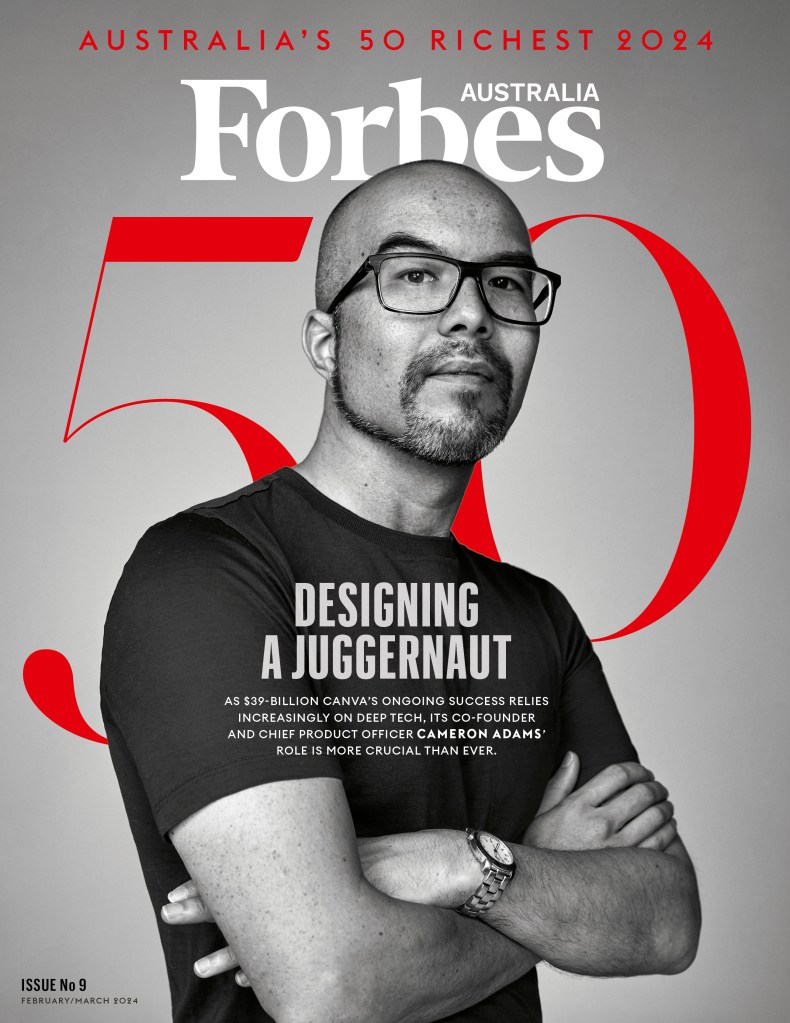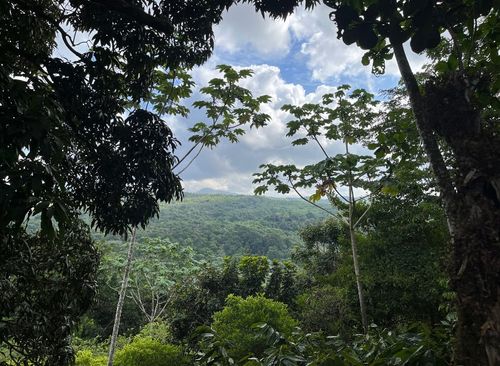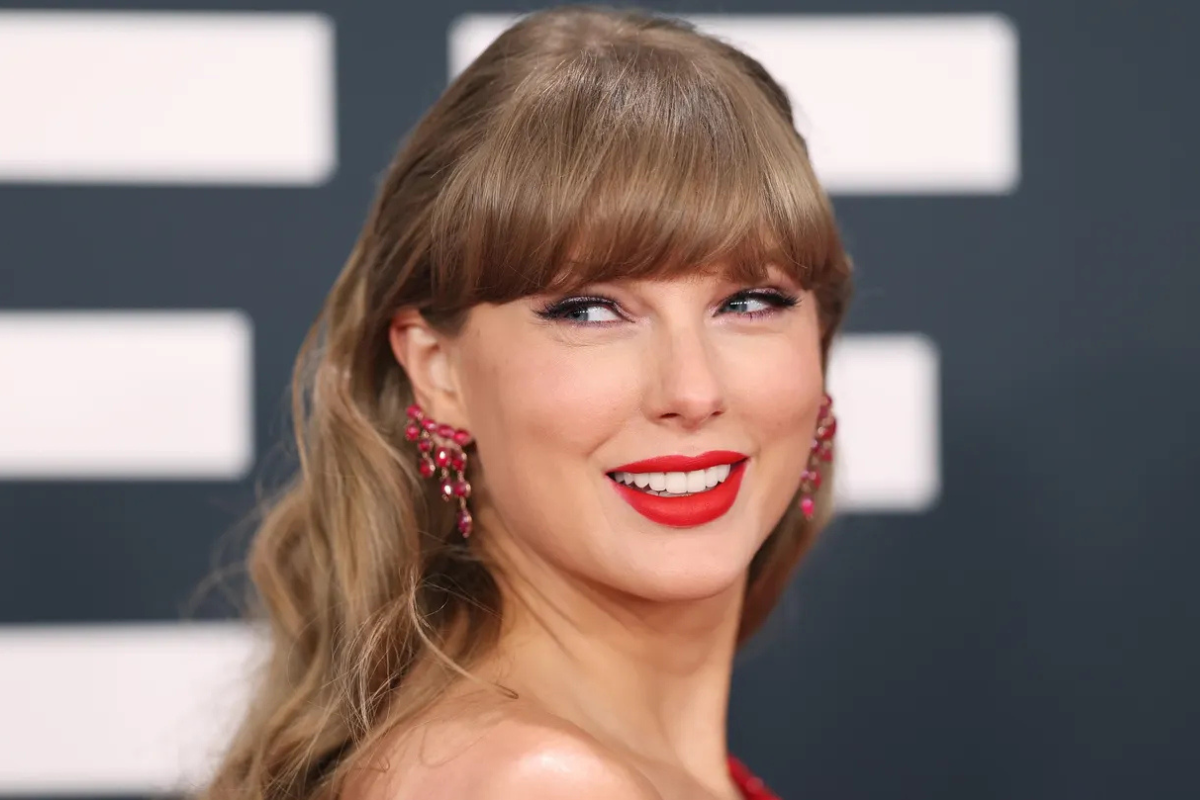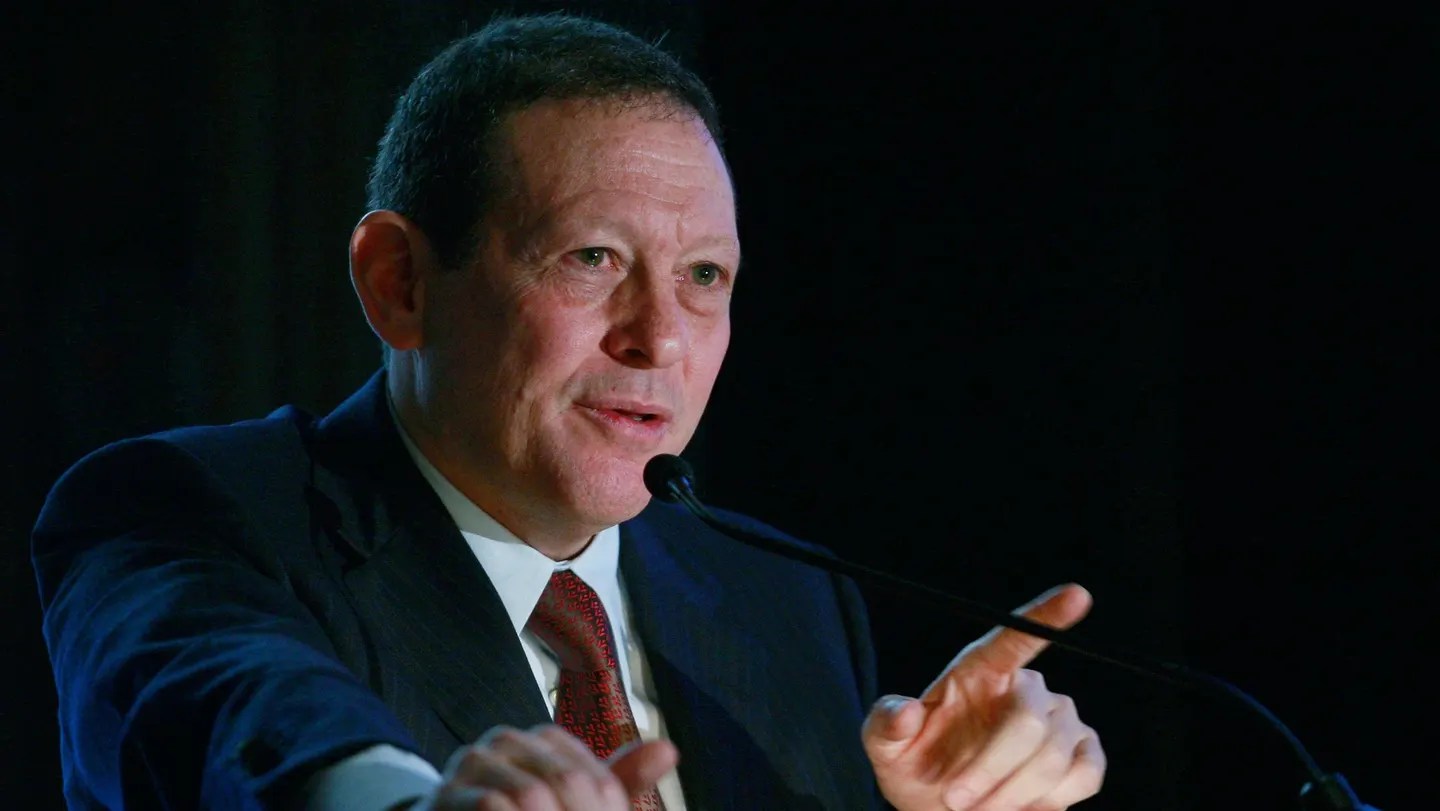The Canva founder and his wife Lisa Miller talk about why they moved to Tasmania and how they’re going to spend the money – when they get it.

“It’s easy for people to be like: ‘That person’s a billionaire, which means they dive into a pool of money every morning,’” says Canva co-founder Cameron Adams, “but all that value is locked up in Canva and it would be silly to take all of it out now because Canva is growing, and the impact we can have with any eventual wealth is going to grow as well. So if we sell our shares in 10 years, we’ll have more money and more impact on the environment than we would now.”
Adams and his wife, Lisa Miller – a zoologist who studied sexual selection and who worked at the Australian Museum until shortly before they met – are focused on biodiversity. They have pledged to give “most” of their estimated $3.37 billion fortune away through their eco-focused venture fund and loan facility, Wedgetail.
Miller says her mind turned to what good they could do with their fast-growing fortune during the 2019 East Coast bushfires, reading estimates that some 3 billion animals died or were displaced by the conflagration. She left Canva – where she’d been working in a variety of growth roles for the previous three years – just as COVID-19 hit.
Related
As it happened, they’d bought a holiday house near Launceston and were stuck there during lockdowns. The Tasmanian city morphed into their permanent home as Miller juggled homeschooling with starting Wedgetail.
Apart from the fact that Launceston was a great place to bring up kids – with great NBN connectivity – Wedgetail was a big part of making the family’s move permanent, says Miller. “I knew I needed to get closer to people in landscapes to understand, ‘how do we start restoration processes? How do you start thinking about landscapes and all the conservation that needs to happen?’”
Her experience at Canva gave her the confidence. “Watching and scaling with a company like that is like a career on steroids. You learn so much. And what I learnt most was that you’re usually the one that puts limits on yourself. For instance, the first M&A (mergers and acquisitions) deal we did, Cliff and I worked on that with some other people, but we didn’t have any professionals in there, yet we were able to get it done.” She’s talking about the May 2019 purchase of two of the largest free stock photo sites, Pexels and Pixabay.
Miller wanted to take that thinking into Wedgetail and all the things she didn’t know – venture capital, eco loans and landscape management. They bought a degraded farm near Ross in central Tasmania and started working on it as an early project. But she was thinking globally. Wedgetail’s first nature-linked loan in 2022 went to a business in the Dominican Republic.

“They have their own small farm where they grow cacao, but they also buy cacao from the surrounding community. It was a working capital loan that enabled them to buy more cacao from the surrounding farmers. This lets them grow their business, but inside that loan, we had what we call nature triggers.” They would get a lower interest rate if they passed a rigorous Smithsonian bird-friendly certification. She says the company borrowed half a million US, paid it back with interest, and certified 250 hectares of farmland.
Wedgetail is focusing on tropical rainforests, for now, with loans in Tanzania, Ecuador and potentially Uganda.
The Adams/Miller property at Ross is being used for research into how to measure environmental outcomes, Miller says. “If we’re doing a loan, and we’re saying that there are returns in financial capital and returns in natural capital, we have to be clear about what we’re measuring, and what are those returns we’re getting in nature? Are they real? Are there more birds? Is the animals in there of a high genetic quality? Is there a better habitat for all these diverse ecosystems?”




